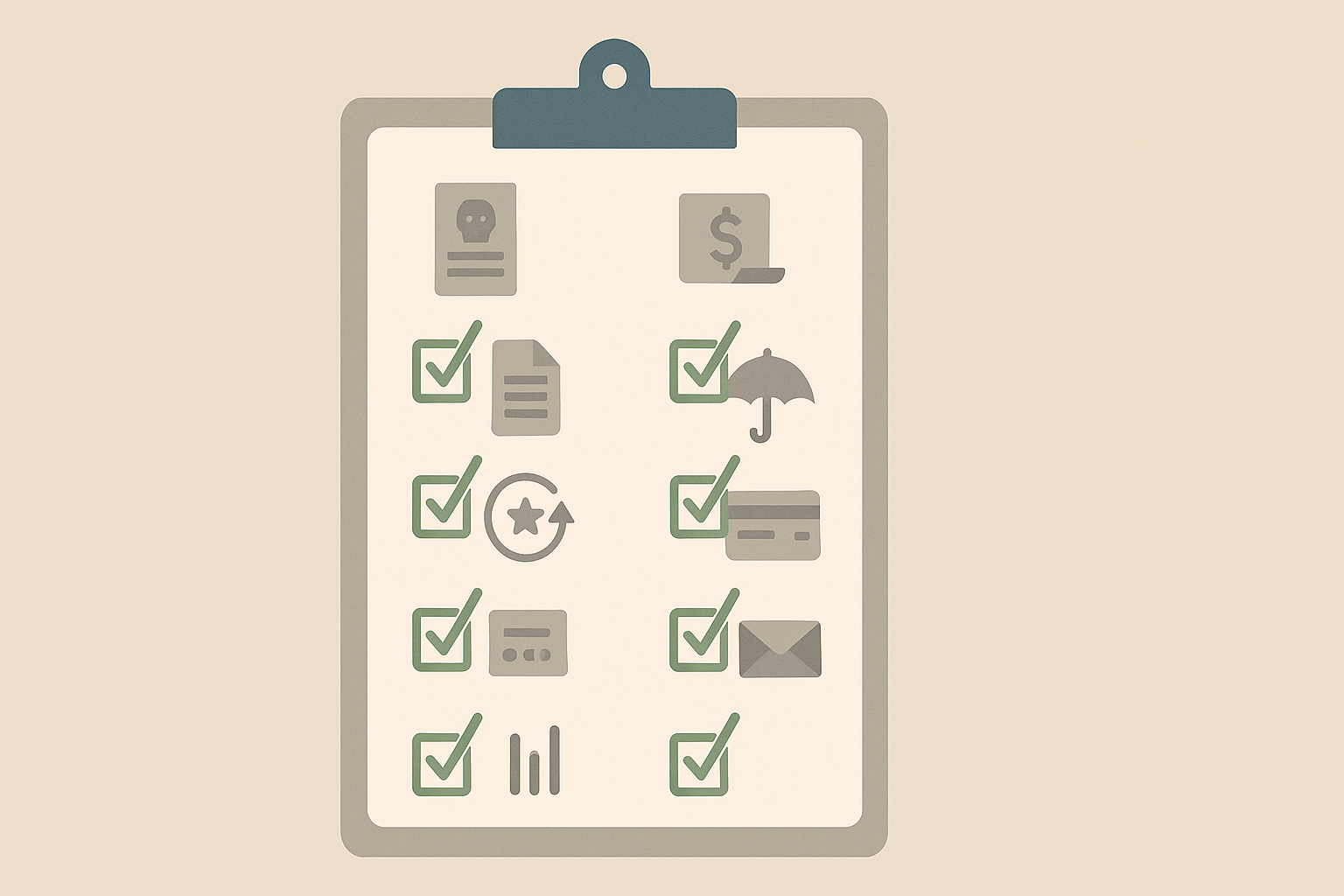After The Funeral: 9 Post Death Administration Tasks to Keep in Mind
After a funeral the management of a person’s estate typically falls to their family. If the courts have to be involved there’s a process (probate) to provide legal recognition to this party, as a formal “executor” or if there’s no family to step into the role an “administrator” is assigned.
We talk a lot about probate, mainly because it’s confusing and something that most people, at least those who work outside of the legal profession and estate planning, don’t know much about. But outside of the formality of probate there are a lot of administrative tasks that fall to loved ones that are part of finalizing the logistics when someone dies.
Here’s a list of 9 things that are part of the process of finalizing some of the long list of odds and ends, after the end of someone’s life.
9 things that are part of the process of finalizing stuff after the end of someone’s life.
1. Death Certificates
This may seem like an obvious one, of course you’ll receive a death certificate, most likely from a funeral home or crematorium, but one of the things many folks are unprepared for is… How many?
In general, the conventional wisdom seems to indicate somewhere between 5 and 15 copies. For a more precise estimate, think of 1 copy for each financial account, insurance policy, or piece of property.
2. Taxes
The “man” has to have his due and taxes must be paid! After someone dies a regular income tax returns, and a tax return on behalf of the estate will both have to be filed.
The latter is typically only required when the estate earns income (from any investments, real estate, etc).
3. Department of Motor Vehicles (DMV)
If someone dies and owns a vehicle, or a boat, or a motorcycle, or anything that has to be registered with the Department of Motor Vehicles, the DMV needs to know. Making sure a vehicle is appropriately titled will help with any transfers or sales and keep you from having to deal with fees.
Other important tidbits:
There is typically only a single transfer of title for a vehicle and not an interim transfer to the estate.
Driving a car that isn’t titled to you is a nebulous grey area legally.
If you’re able, keep a car parked until probate can help provide authorization.
Don’t let insurance lapse (see #4 below) or get cancelled so that any vehicles are covered.
4. Insurance (until probate is over)
Are there homes, apartments, or cars? It’s important to know that until the estate is settled any insurance policies have to be maintained. Costs are typically covered by the estate so keep detailed records of payments for any car insurance, home owners insurance, or rental insurance to make sure if these expenses came out of your pocket that you’re reimbursed.
Keeping insurance active ensures that any assets are protected while the estate is settled and/or probate is finalized.
5. Frequent Buyer Points & Miles
Did you know that some rewards programs or frequent flyer points can be transferred? It never hurts to ask. If your loved one was a consistent traveler there may be thousands of dollars worth of travel points or miles that can be transferred to another family member or friend. Reach out to the individual provider for details!
6. Credit Bureaus
Some of you might think hey, they’re dead, what could possibly happen with their credit but sadly someone’s death can create an opportunity for fraud. Identity theft of a recently deceased person can give a nefarious actor an opportunity to open credit cards or loans and create fraudulent accounts. That’s the last thing you need when you’re trying to settle an estate. Make sure you reach out to the big three (Equifax, Experian, and TransUnion last we checked) to let them know that your loved one has died and accounts should be closed.
7. Subscriptions
This can be a long list. Netflix, Apple Music, The Wall Street Journal, a monthly delivery from Amazon. Hopefully you’ll have access to electronic logins to take a look around and perhaps check email.
One of the quickest ways to make sure these types of recurring charges are managed is to cancel any credit or debit cards. This way when any recurring subscriptions attempt to re-up the payment method fails and saves you the running around required to cancel all of these individually.
8. Utilities
While any utilities or services for a home or apartment will have to be maintained until it’s transferred or sold, it’s important to reach out to these services to notify them of the account holder’s death. Look for details for gas, electricity, water & sewer, trash services, and any telephone service (hey, some places still have land lines).
This can help you avoid any interruptions in service while you’re trying to work out payment and other details.
9. Mail Forwarding
Trying to keep track of bills, expenses, and other important correspondence may drag on for months after someone dies. Make sure to have mail forwarded particularly if the property is a rental or sold.

